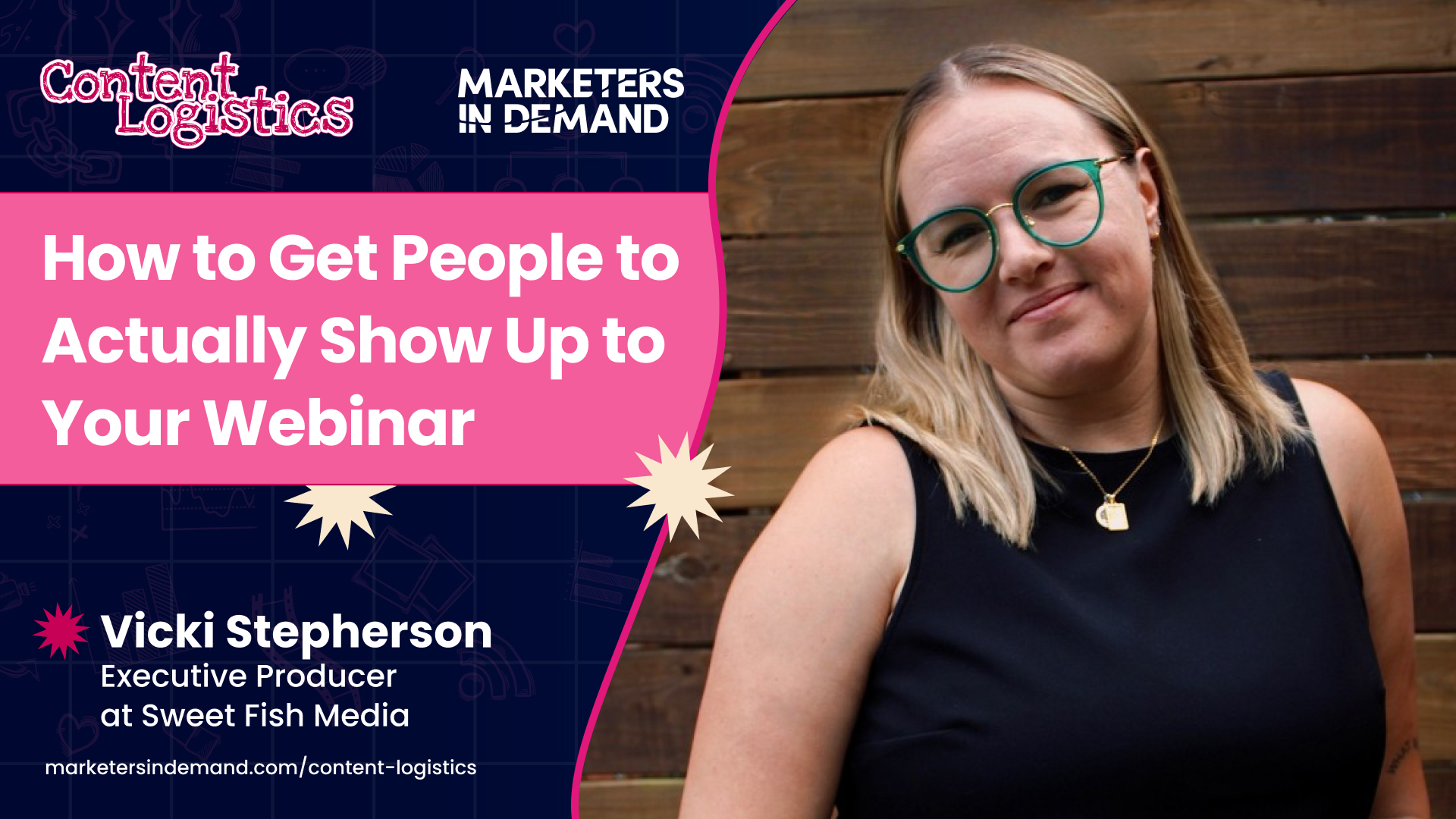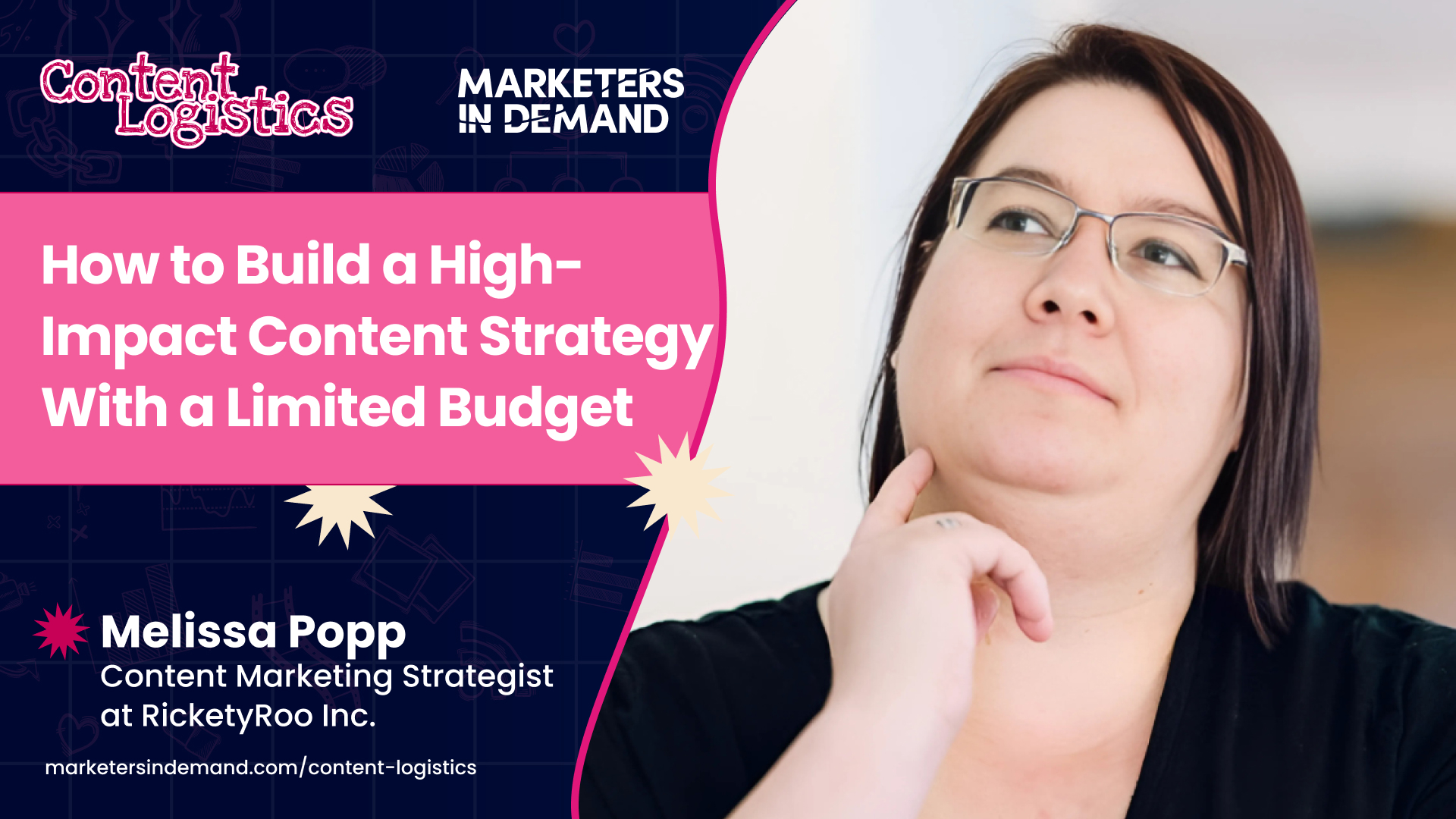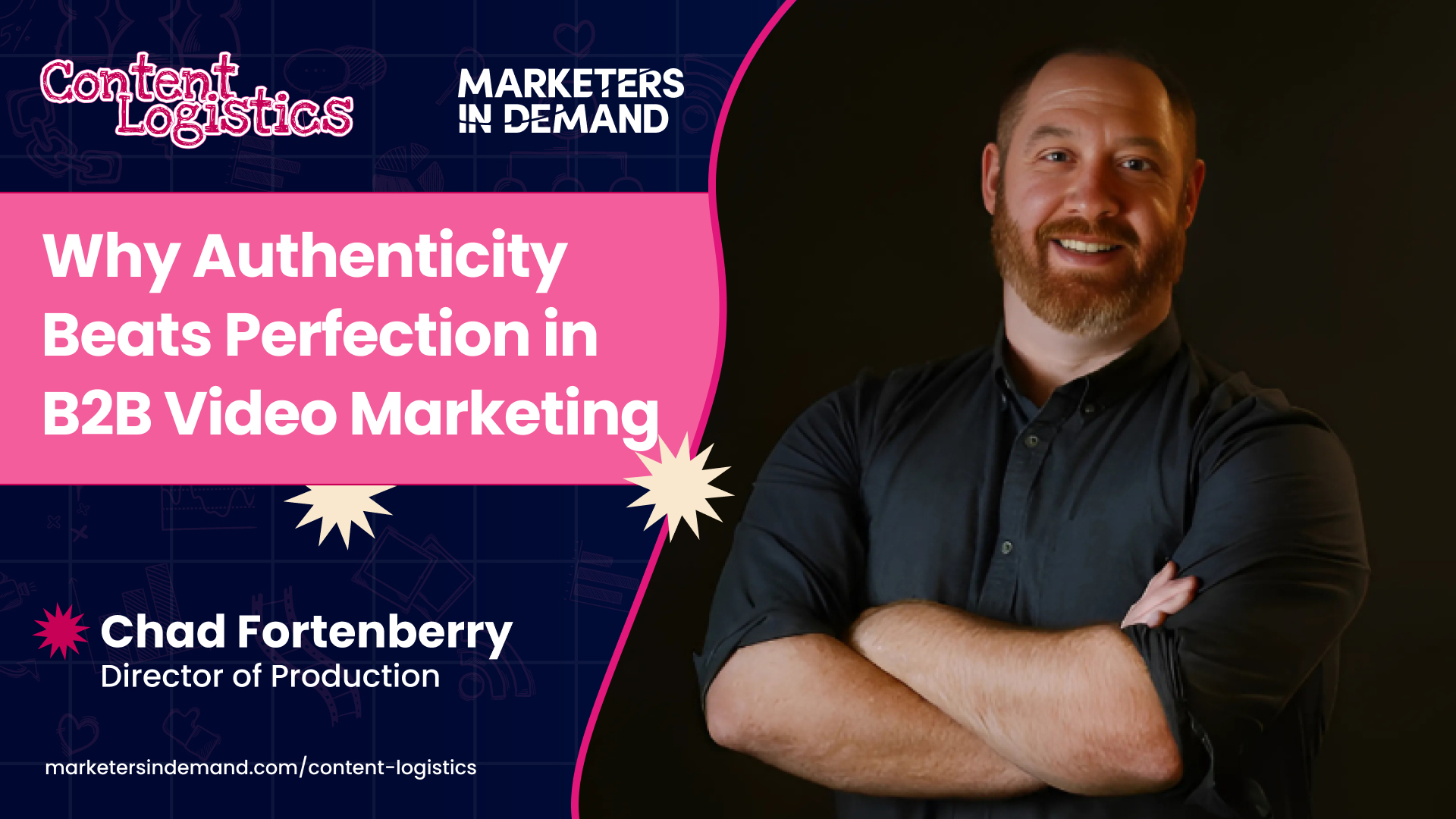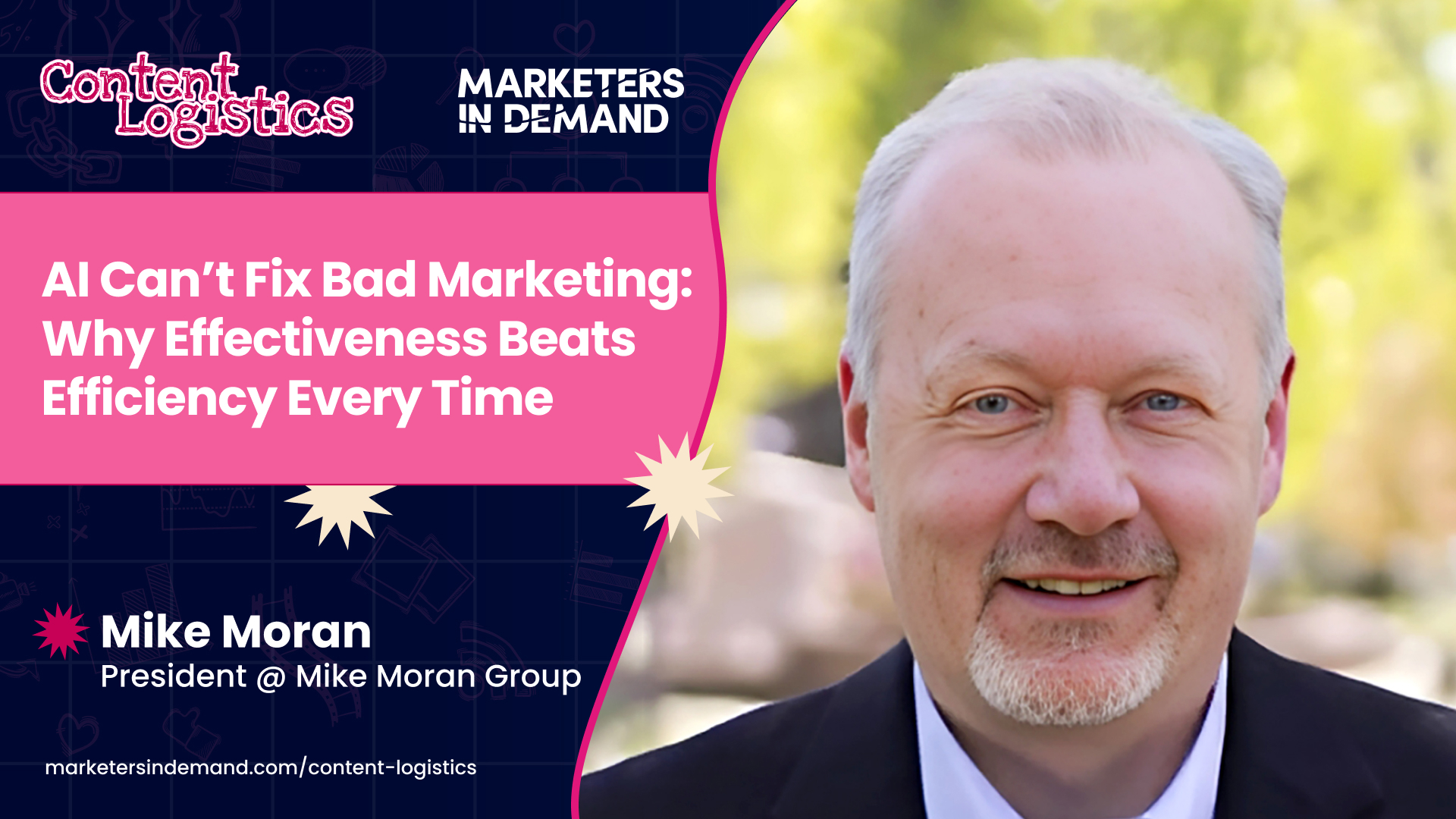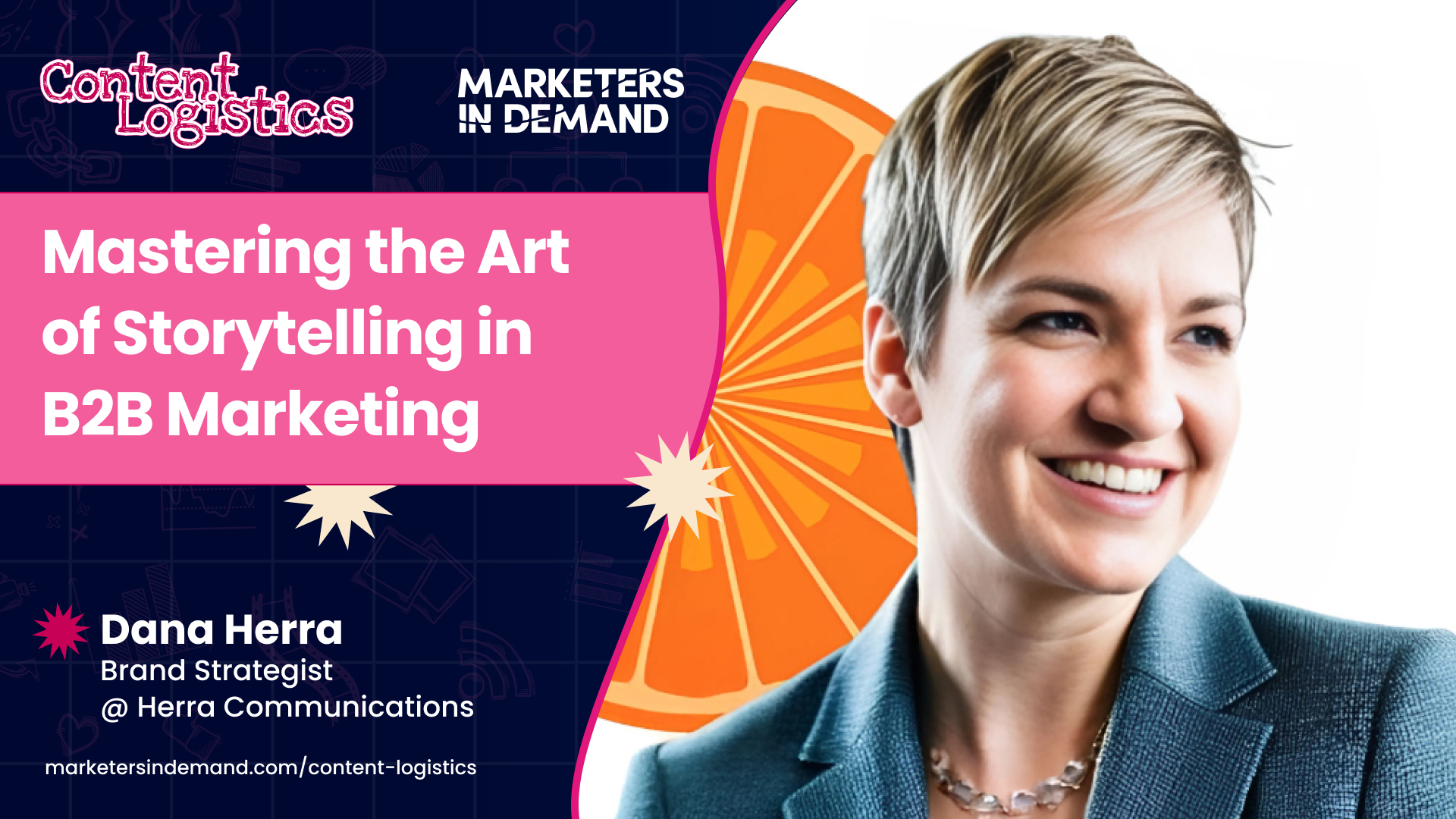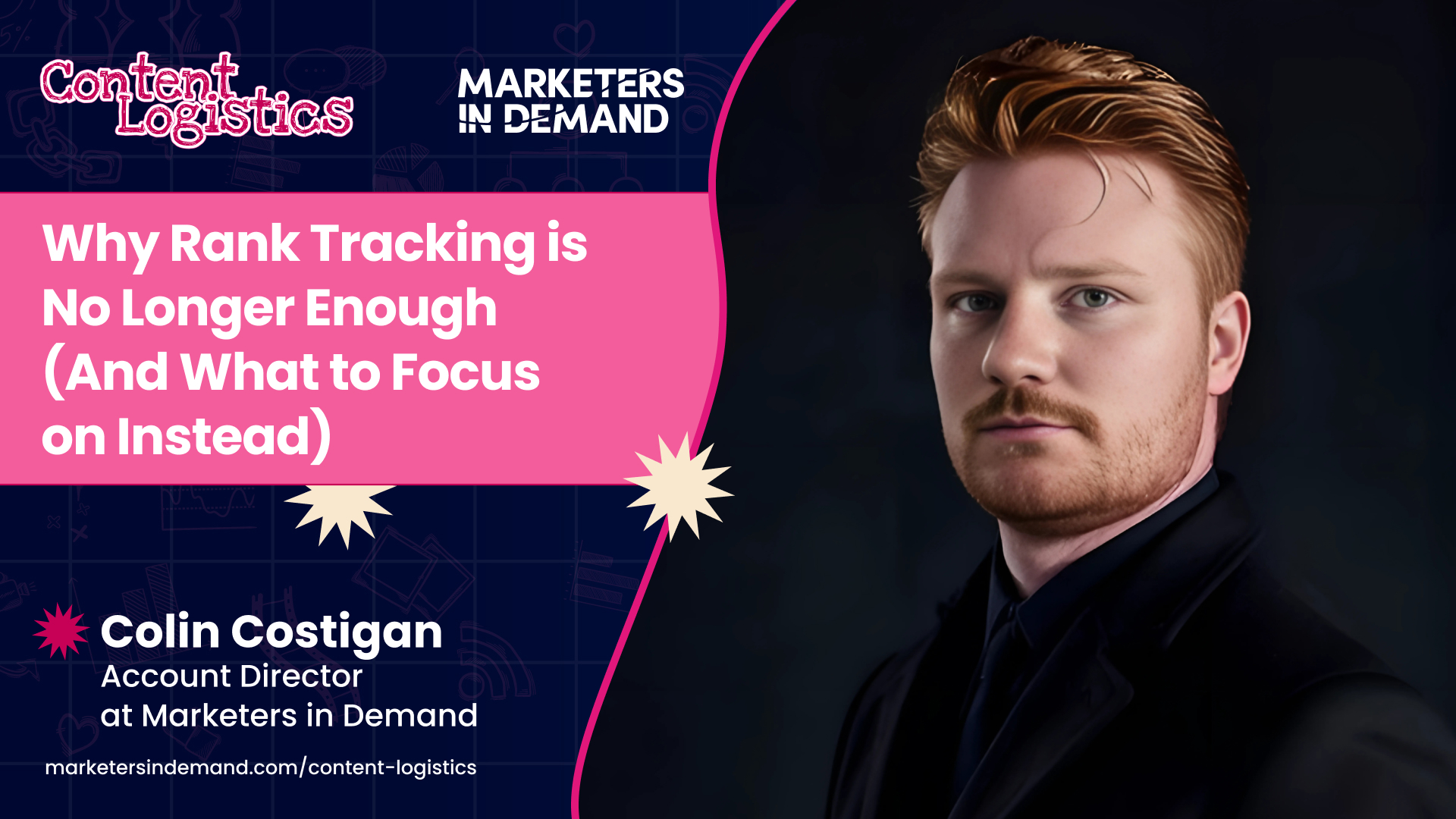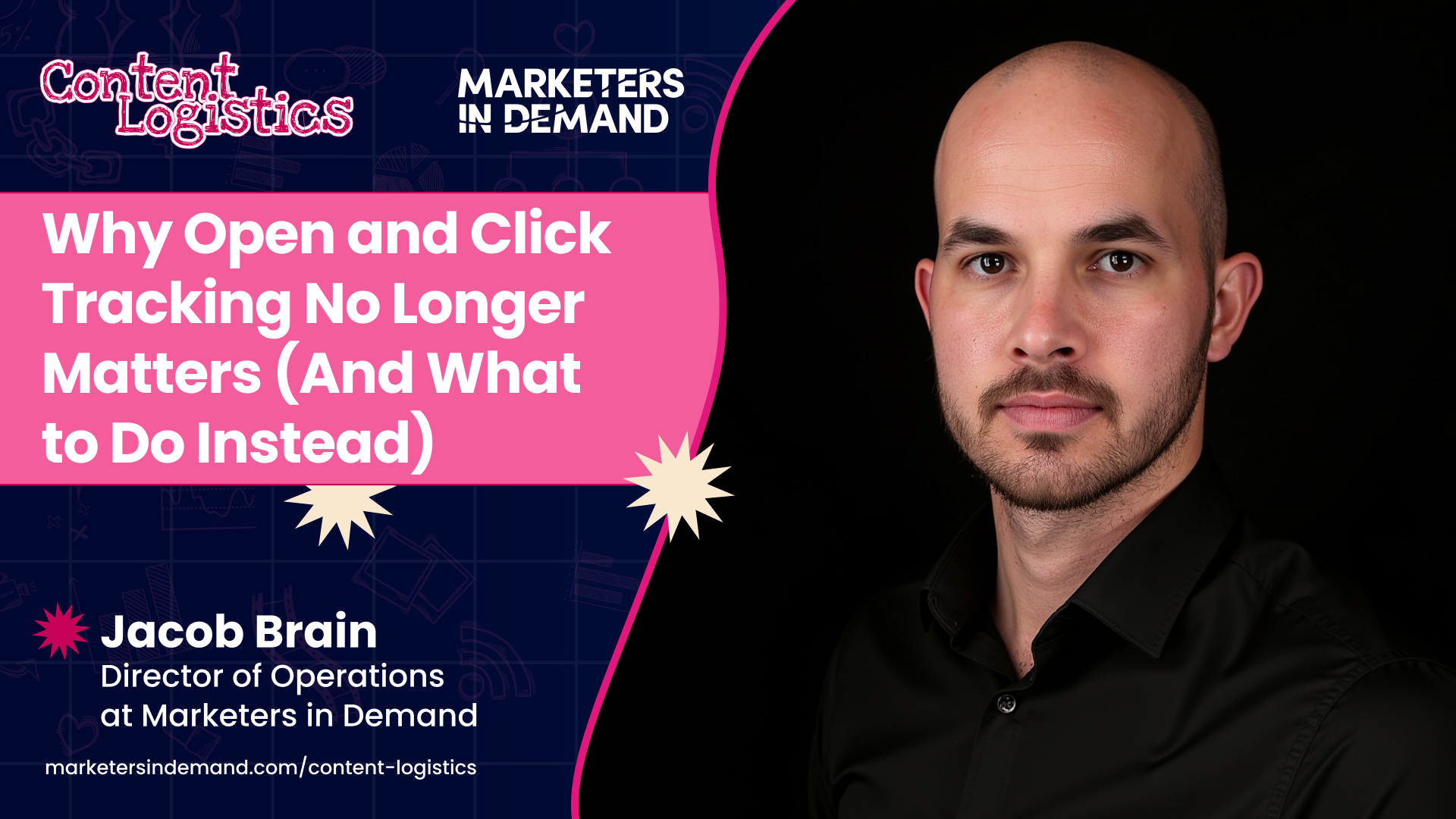SEO doesn’t have to be complicated. In this episode of Content Logistics, host Baylee Gunnell sits down with Joe Michalowski, Senior Marketing Advisor at Marketers in Demand, to break down the essentials of SEO—without the jargon. They tackle what actually moves the needle, from optimizing content for search engines to structuring pages for better rankings. Joe shares why businesses should focus on writing valuable content first and worry about keywords later.
They also discuss the biggest SEO misconceptions, like whether publishing on a strict schedule matters or if more content automatically means better rankings. Joe explains why site structure, internal linking, and domain authority play a bigger role than most people realize. Plus, they cover how to avoid common pitfalls like keyword cannibalization and low-quality AI-generated content.
Finally, Baylee and Joe explore how AI and tools like ChatGPT are reshaping search behavior. Is SEO dead? Far from it. But the rules are changing, and marketers need to adapt. Tune in to learn how to build a search strategy that actually works.
Featured Guest

Name: Joe Michalowski
What he does: Senior Marketing Advisor
Company: Marketers in Demand
Noteworthy: Expert in SEO and content strategy with a focus on organic growth.
Featured Guest
Key Insights
SEO Isn’t About Gaming the System—It’s About Creating Value
Many marketers overcomplicate SEO by focusing too much on ranking factors and technical optimizations while neglecting the core purpose: creating valuable content that answers real customer questions. Joe Michalowski emphasizes that SEO should start with understanding your audience’s needs, not with keyword research. Instead of chasing high-volume search terms, businesses should focus on publishing high-quality, useful content. He suggests writing about topics that customers frequently ask about, then optimizing for search engines afterward. This approach not only builds trust but also ensures that content remains relevant and engaging. Companies that focus on SEO tactics without a strong content foundation often struggle to drive meaningful traffic.
Ranking High Doesn’t Mean Success—Traffic and Conversions Matter More
SEO isn’t just about getting to the top of Google. Joe stresses the importance of measuring success beyond keyword rankings. Many businesses fixate on whether they rank #1 for a specific term, but what truly matters is whether the traffic they generate leads to conversions. He explains that low-volume, high-intent keywords are often more valuable than broad, high-volume ones. A small but engaged audience searching for specific solutions will always outperform large but irrelevant traffic. Joe recommends prioritizing metrics like organic leads, conversion rates, and non-branded search traffic over ranking reports. Understanding which pages drive meaningful results allows companies to refine their SEO efforts strategically, rather than chasing vanity metrics.
AI and Search Are Evolving—But SEO Isn’t Dead
With AI-driven search tools like ChatGPT changing how people find information, many wonder if SEO is becoming obsolete. Joe clarifies that while search behavior is evolving, SEO is far from dead—it’s just shifting. He explains that well-structured, comprehensive content is still essential for visibility, whether in traditional search results or AI-generated summaries. Google’s AI overviews favor high-quality, authoritative content, meaning businesses that already focus on creating value will naturally benefit. Instead of chasing hacks to rank in AI search, marketers should double down on clear, informative content that thoroughly answers user queries. The fundamentals of SEO—strong site structure, useful content, and backlinks—remain just as relevant in an AI-driven landscape.
Episode Highlights
Why SEO is Not a One-Size-Fits-All Strategy
Joe Michalowski emphasizes that SEO strategies differ based on business size, industry, and content maturity. A brand-new website will require a vastly different approach than a well-established domain with hundreds of pages. He explains that smaller businesses should focus on foundational SEO, like optimizing for basic keywords and structuring their pages well. Meanwhile, larger companies must audit existing content, consolidate competing pages, and refine keyword targeting. Joe points out that many businesses struggle because they try to apply advanced strategies before getting the basics right.
“We’ve talked about this before. It’s like, try really hard to simplify this, because like I said, there’s, there’s levels. There’s SEO for like a brand new site, and then there’s SEO for like a ten-year-old site that has 500 pages on it… I don’t want to ignore the high end, but if you’re a small startup or you’re a small business and you don’t really know what you’re doing, the first thing to do is put content on the website that is optimized for some sort of keyword.”
The Role of Domain Authority and Backlinks
Joe breaks down the concept of domain authority and why it plays a critical role in SEO. He explains that high-authority websites are seen as more trustworthy by search engines, making it easier for them to rank. Backlinks from reputable sites help build this authority, but not all backlinks are created equal. A single high-quality link from an industry-relevant website can be more valuable than multiple low-quality links. Joe also discusses how new websites can start building their authority by setting up basic social profiles and seeking relevant industry mentions.
“First thing you can do is set up profiles on Facebook and LinkedIn. That is like a baseline—your website now exists in more places than just your website. And then like in the future, imagine a startup getting funding. They get an article in TechCrunch, and it’s like, okay, now TechCrunch links to us… Google says, ‘Oh, well, if these trustworthy sites trust this site, then I should too.’”
Common Technical SEO Mistakes That Hurt Rankings
Baylee and Joe discuss frequent technical SEO mistakes that many businesses overlook. One major issue is improper header structure—using multiple H1 tags or skipping logical hierarchy altogether. Another mistake is failing to use internal links effectively, which makes it harder for Google’s bots to crawl and understand site content. Joe advises businesses to review their website’s technical setup before investing heavily in new content. He stresses that even well-written pages will struggle to rank if they lack proper structure and internal linking.
“The first thing I look for, if I get a new site or a new client and they’re like, ‘Is my SEO broken?’ is: do you have more than one H1 on the page? It’s very common… There should be a logical structure to it, where the main subsections are H2s, and those have subsections that are H3s. And then internal links—the thing you want to rank for? Add links to the article with anchor text that actually matters.”
The Difference Between On-Page and Off-Page SEO
Joe breaks down the difference between on-page and off-page SEO, explaining that while on-page optimization involves direct control over content and structure, off-page SEO focuses on external signals like backlinks, digital PR, and brand presence. Many companies mistakenly assume that SEO is just about tweaking their own pages, but Joe highlights how brand authority and external credibility also impact rankings. He also warns against black-hat tactics like spammy link-building, which can do more harm than good.
“On-page SEO is what you directly control—your headers, copy, and internal links. Off-page is everything happening outside your site, like building links, guest blogging, and digital PR. Having a solid brand actually helps SEO too. If people recognize you when they see your result in search, they’re more likely to click. It’s not just about backlinks; it’s about credibility and presence.”



